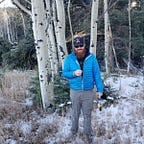Reviving Expertise in a Populist Age By Zach Graves and M. Anthony Mills
This thought-provoking piece is both disturbing and hopeful. As I read this article, I found myself asking: “how can this be true?” “How could the American people allow themselves to effectively become subject to technocrats?” Graves and Mills bluntly state,
…populist backlash feeds into a general wariness of scientific expertise. Although Americans continue to hold scientists in high esteem in the abstract, our public discourse is shot through with disagreement, distrust, and cynicism about scientific findings, from vaccines to climate change to genetically modified foods.
There appear to be two main camps: the first represents the post-modern ideas of planned economies and an expert class rule. The primary failing in this idea is the short-sightedness of the claim. There is little evidence that centralized planning will solve any country's social, economic, and political issues. In fact, more evidence exists that central planning has the opposite effect. One need look no further back in history than the Soviet Union. Whose central food distribution system resulted in the starvation and loss of more lives than the number of lives lost in the Holocaust. Due to the Soviet record keeping (or lack thereof), we will never know the precise number.
This second camp consists of Classic and even Liberal values, who advocate for experts’ input but recognize that the political process, though flawed and easily manipulated, is necessary or even required to weed out the well-intentioned detriment of post-modern thought. This is some academic and professional spheres is referred to as the rhetorical process. A process in which the Rhetor explores the issue at hand and gains understanding through the reiterative processes of written thought, debate, and discourse.
Therefore, the question in which necessitates further research is, “Does the Rhetorical process play a role in establishing authority and credibility as an expert?”
